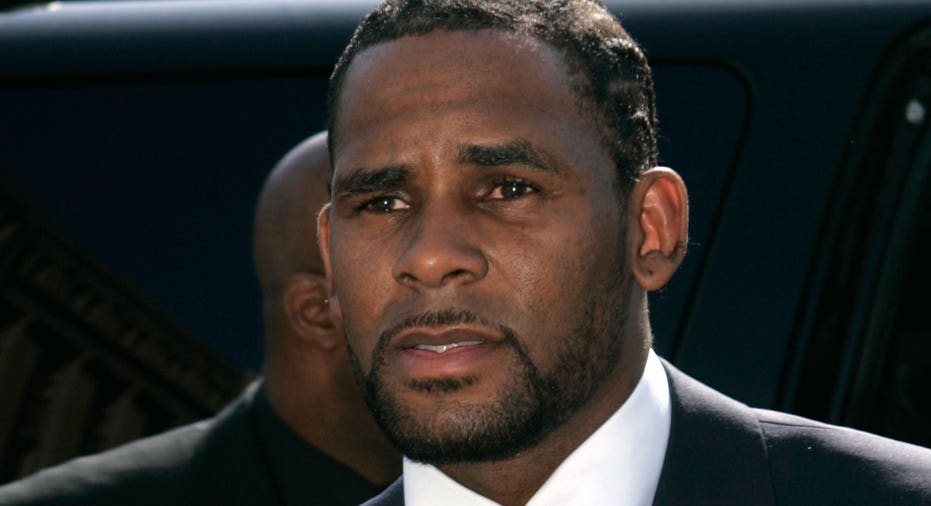Rich and Famous Tax Deadbeats: What’s the Deal?

The tale of the celebrity who doesn’t pay his or her taxes is one of the oldest in Hollywood.
R&B singer R. Kelly last week became the latest to perpetuate it, as news broke that he owes the government nearly $5 million for taxes that have gone unpaid since 2005.
For as often as this sort of situation emerges (a week before the R. Kelly news broke, singer Lauryn Hill was in the hot seat), it’s always a bit surprising. After all, many of these celebrities make more money on one album or one advertisement than most of us will see in our lifetimes – so what’s the problem?
Most of the time, it boils down to poor financial decisions.
They have the wrong people in their corner
Celebrities are known to have several assistants and advisors to help them juggle their busy lives, and sometimes they trust the wrong people to do the job.
Rock legend Ozzy Osbourne and his reality star wife Sharon, who owed as much as $1.7 million in back taxes as of April, seem to have learned that lesson the hard way. Sharon tweeted at the time:
“You can't rely on anyone but yourself. You have to be on top of your own business affairs. My fault........lesson learned.”
(The couple has already paid off almost $719,000 of their bill so far, according to reports.)
Lynnette Khalfani Cox, founder of free financial advice site AsktheMoneyCoach.com, says it’s a situation that plays out all the time.
“I have sympathy for celebrities who get into tax trouble and, at the same time, a huge amount of bewilderment that the very people who can ostensibly afford to pay for good financial help clearly are not getting it,” she says.
Celebrities don’t have some sort of penchant for finding crooked tax advisors, but they are known to hire friends and other people from within their social circles who tell them only what they want to hear. David Selig, a federal tax practitioner and founder of TrueTaxHelp.com who has worked on several celebrity tax cases, says those decisions can backfire immensely.
“If you’re not willing to hire a good accountant, or you don’t listen [to your accountant] because he or she doesn’t have a charismatic personality or isn’t a party animal, that’s a recipe for trouble.”
Celebrities can blame their advisors, but at the end of the day, they’re still the ones who must pay the price.
“You signed your tax return under the penalty of perjury,” Selig says. “You should have known what was in it.”
They aren’t typical U.S. wage earners
Celebrities aren’t like typical wage earners who have their taxes automatically deducted from their paychecks all year, which means they could often owe huge sums of money come tax time, says Cox.
While that shouldn’t seem like a problem for someone who gets $10 million a movie or $4 million for an endorsement deal, the fact is celebrities might not get paid every week or every month, and when they do, they get a massive lump sum. Like the average person who gets a cash windfall, it’s easy for them to run through it.
“Ninety-nine out of 100 Americans, if they found themselves in a similar economic position, would do the exact same thing,” Cox says.
When it’s time for Uncle Sam to collect dues, celebrities might not have the tens of thousands of dollars they owe at their fingertips.
And how ‘bout those penalties?
Celebrities, or taxpayers of any kind, have several chances to challenge tax allegations made against them. When a lien is filed against a taxpayer, he or she has 30 days to refute it; it’s when the celebrity procrastinates and doesn’t respond to the IRS’s subsequent letters that things get more complicated and expensive, says Selig.
The very fact that celebrities are in the public eye means the IRS can make an example of them, but that doesn’t necessarily mean throwing them in jail.
More often than not, they’ll be penalized for negligence and have to pay a 20% penalty on top of whatever they owe to the government, says Selig, who added that R. Kelly is likely to face this sort of penalty at the very least.
More serious is civil fraud, which means there’s “clear and convincing” proof that some part of the underpayment of tax was due to fraud and comes with a penalty of up to 75%, according to the IRS.
Only if a celebrity is convicted of criminal fraud – if he or she files false tax returns or deliberately evades taxes in some way– is imprisonment a possibility. (Wesley Snipes, for instance, has been serving a three-year jail term for willful failure to file his federal income tax returns.)
At the end of the day, celebrities can’t rely on getting a free pass on their tax bills.
“The IRS is not enamored by celebrity,” Selig says.



















